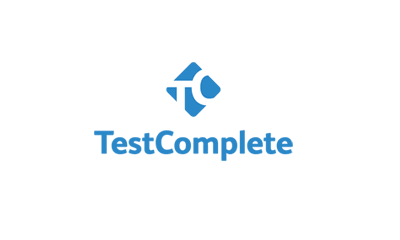Transformative Impact of AI on Functional Testing
The market for AI in software testing is anticipated to witness substantial growth, with a projected increase from $284 million in 2020 to $1.4 billion by 2025. This represents a remarkable Compound Annual Growth Rate (CAGR) of 38.8% during the forecast period. AI technology presents the opportunity to automate repetitive testing tasks, thereby allowing testers to devote their time and resources to the more complex and creative aspects of the testing process. Functional Testing, a critical phase in software testing, involves a comprehensive and meticulous validation methodology to ensure that a software system adheres to its functional requirements and specifications.
The Role of AI in Functional Testing
Functional testing is a crucial phase in software testing that aims to ensure software systems meet their intended functionality, adhering to the specified requirements and specifications. With advancements in artificial intelligence (AI) technology, the role of AI in functional testing has become increasingly significant. This article explores the transformative impact of AI on functional testing and how it is revolutionizing the field of software quality assurance.
- Automation of Repetitive Testing Tasks: AI brings the power of automation to functional testing, enabling the efficient execution of repetitive testing tasks. Through machine learning algorithms, AI can analyze vast amounts of test data, identify patterns, and generate optimized test scenarios. This automation reduces human effort, improves testing efficiency, and accelerates the overall testing process.
- Intelligent Test Case Generation: AI algorithms can intelligently generate test cases based on system requirements, specifications, and historical test data. By leveraging machine learning models, AI can predict potential risks and vulnerabilities, helping testers identify critical areas to focus on. This intelligent test case generation not only saves time but also enhances test coverage and ensures comprehensive testing of the software system.
- Real-time Defect Detection and Analysis: AI-powered testing tools can continuously monitor software operations and quickly detect defects or anomalies in real-time. By analyzing system logs, performance metrics, and user behavior, AI algorithms can pinpoint potential issues and provide actionable insights for problem resolution. This real-time defect detection and analysis enable testers to address issues proactively, minimizing the impact on users and enhancing software quality.
- Test Data Management and Optimization: AI plays a vital role in managing and optimizing test data for functional testing. AI algorithms can generate realistic and diverse test data that covers various scenarios, ensuring comprehensive testing of the software system. Additionally, AI can identify redundant or irrelevant test data, reducing the size and complexity of test datasets, leading to improved efficiency and resource utilization.
- Enhanced Test Coverage and Accuracy: Through AI techniques such as machine learning and data mining, functional testing can achieve higher test coverage and accuracy. AI algorithms can analyze the relationships between input parameters and expected outputs, enabling the identification of potential edge cases and corner scenarios that might go unnoticed through manual testing. This enhanced test coverage helps identify critical defects that could impact the software’s functionality.
AI powered tools used to automate functional testing

Selenium is a popular open-source framework that utilizes AI techniques to automate web browsers. It provides a range of capabilities to create robust and reliable automated test scripts for web applications. Selenium uses machine learning algorithms to analyze web elements, identify patterns, and generate optimized test scripts. It allows testers to interact with web elements, simulate user actions, and validate expected results. Selenium’s AI capabilities enable it to handle dynamic web pages, adapt to changes in the application’s structure, and ensure accurate and efficient testing.

TestComplete incorporates AI algorithms to automate the testing of web, desktop, and mobile applications. It offers features such as intelligent object recognition, self-healing scripts, and autonomous test maintenance. TestComplete’s AI capabilities enable it to identify and adapt to changes in the application’s user interface, handle complex controls, and generate test scripts with minimal manual intervention. It also provides intelligent test execution, allowing for parallel testing, distributed testing, and real-time feedback on test results.
AI-powered tools like Selenium and TestComplete greatly enhance the efficiency and effectiveness of functional testing by automating repetitive tasks, adapting to changes in the application, and accelerating the overall testing process. These tools enable testers to focus on more complex and critical testing activities, resulting in higher-quality software systems.
Conclusion
AI is revolutionizing functional testing by automating repetitive tasks, intelligently generating test cases, enabling real-time defect detection, optimizing test data management, and enhancing test coverage and accuracy. These advancements in AI technology are reshaping the field of software quality assurance, improving the efficiency and effectiveness of functional testing processes. As AI continues to evolve, it holds immense potential to further enhance software testing practices, ensuring the delivery of high-quality software systems to end-users.
